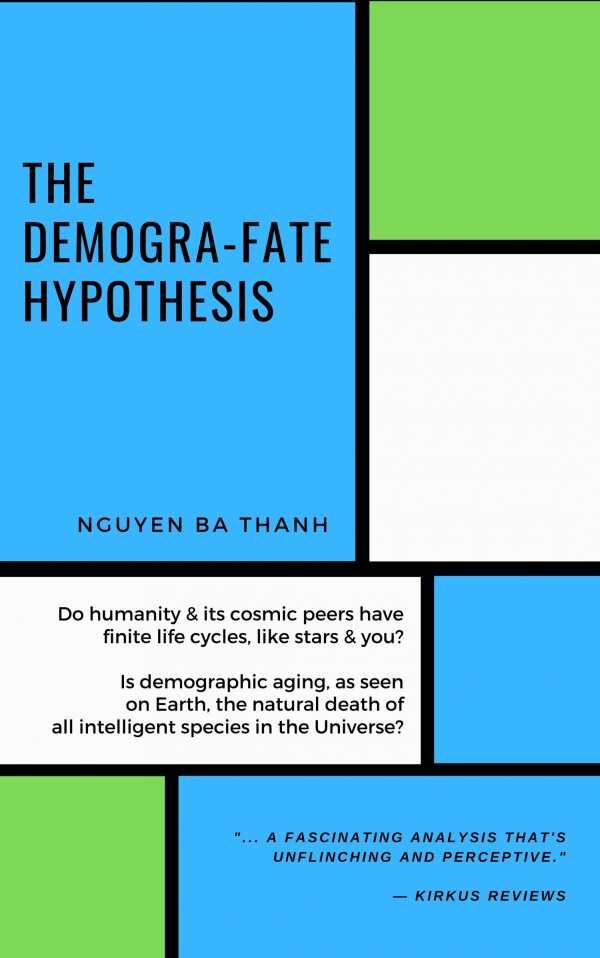The Demogra-Fate Hypothesis
Is Demographic Aging, as Seen on Earth, the Natural End of All Intelligent Species in the Universe?
The Demogra-Fate Hypothesis experiments with scientific theories about the future of humanity and other intelligent species.
Nguyen Ba Thanh speculates about the future of humanity in his social science book The Demogra-Fate Hypothesis.
Thanh notes that, while there are many theories about how humankind and the universe as a whole will end, one fact is certain: the end is coming, one way or another. With birth rates dropping across the globe, human beings will soon find out whether they can be happy and prosperous with fewer children, or if birth rates will increase as people recognize and regret the downsides of an older population. As people learn more about the universe, such questions and options will take on even greater significance, Thanh says—specifically, questions of whether or not aging is a common fate for advanced civilizations.
From the text’s perspective, humans beings are lazy and short-sighted: too absorbed with immediate, personal wants to think about the future of the species as a whole. It names many reasons for the collapsing birth rate, most of which, Thanh believes, can be summed up in one word: modernity. Medical advances lowered infant mortality, eliminating the need for large families; increased leisure time, economic opportunities, and fun experiences diminished people’s desire to have children. The book posits that this could be a natural outcome for any species that survives its early stages, when it is concerned only with survival. It suggests, too, that a lack of contact with other advance species makes the hypothesis impossible to prove. For the moment, the book’s theories rest at the level of a thought experiment. They are nonetheless intriguing.
The book takes the unique approach of using only Wikipedia articles to inform and support its arguments. Links to its sources are included at the end of the book. Still, the editable nature of Wikipedia articles means that the information that the book builds itself on may be unavailable in the future; anyone who visits a given web page may be unaware of the changes, if any, that have been made. Reliance on this single, malleable source is therefore a calculated risk.
Variously blunt and fatalistic and chipper, the book emphasizes each individual person’s lack of control over their ultimate fate and their place in the universe. This softens the hypothesis’s sharper edges, keeping the book entertaining, even as it delivers harsh facts and opinions. It sometimes indulges in broad assumptions about, for instance, the causes of obesity and human ancestors’ desire for large families. Still, its discussions are accessible and thought-provoking, probing how human beings developed, and continue to develop, with contagious curiosity.
The Demogra-Fate Hypothesis experiments with scientific theories about the future of humanity and other intelligent species.
Reviewed by
Eileen Gonzalez
Disclosure: This article is not an endorsement, but a review. The publisher of this book provided free copies of the book and paid a small fee to have their book reviewed by a professional reviewer. Foreword Reviews and Clarion Reviews make no guarantee that the publisher will receive a positive review. Foreword Magazine, Inc. is disclosing this in accordance with the Federal Trade Commission’s 16 CFR, Part 255.

